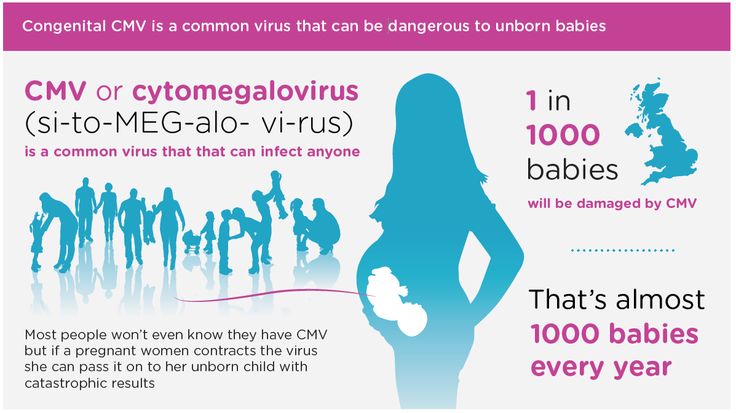When do newborns start staying awake
Sleep 0 – 3 months
Baby sleep
In the first few weeks after birth, babies sleep much of the day and night. Most wake 2 to 3 times during the night for feeds.
Babies have shorter sleep cycles than adults and wake or stir about every 40 minutes. By 3 months, many babies will have settled into a pattern of longer times awake during the day, and longer sleep times (perhaps 4 to 5 hours) at night. Most will still be waking once or twice during the night for feeds.
Sleeping baby in a safe cot next to the parents’ bed for the first 6 to 12 months reduces the risk of sudden unexpected death in infancy, including SIDS, as long as the room is smoke free. Sharing a bed with a baby for sleep has led to the deaths of some babies.
Secure attachments in infancy are the base for good mental health. A major need for secure attachment is for a parent to respond to infant needs and cues. It is important not to leave your baby to cry.
This topic may use 'he' and 'she' in turn – please change to suit your child's sex.
Daytime and night time patterns
Very young babies have little idea of day or night and most wake regularly around the clock every 2 or 3 hours needing a feed and attention.
In the first few months it is common for babies to wake regularly at night for feeds at least 2 or 3 times. As a guide, many babies sleep 14-20 hours a day in the first weeks.
By 3 months many are settled into a pattern of longer sleep times – perhaps 4 to 5 hours at night. When a baby sleeps about 5 hours straight, this is considered ‘sleeping through the night’.
Ideas for settling
Routines to get ready for sleep
At this age babies are often relaxed and sleepy after a feed. Some develop a pattern of waking often and needing a feed to settle. Some babies are helped by a daytime pattern of a feed and then settling after a small play, cuddle, talk and touch. Watch your baby’s signals for when she is alert and wanting to play and when she is sleepy.
Some young babies tend to be more wakeful in the evening or night rather than during the day.![]() It helps babies learn about day and night if you settle them at night in a quiet, dark place and don’t play with them or do anything that makes them more wakeful.
It helps babies learn about day and night if you settle them at night in a quiet, dark place and don’t play with them or do anything that makes them more wakeful.
Even with young babies you can start a bedtime ritual. You may sing a little song, kiss her goodnight, find the dummy (if she has one) and then give a gentle kiss with some special soft words of love when you put her down.
Tired signs – sleep cues
As you get to know your baby you will start to learn when he is sleepy and needs to be put down for sleep. Long before they can talk, babies have tired signs or sleep cues in their behaviour that show you what they need. Your baby will have his own special sleep cues but here are some that most babies have that will give you a start in watching for your baby’s cues:
- yawning
- jerky movements
- becoming quiet, not wanting to play
- ‘grizzling’ or fussing
- rubbing their eyes
- making a sleepy sound
- crying
- facial grimaces, including pulling faces
- clenched fists
- waving arms and legs about.

If you miss the tired signs and don't help your baby to settle, your baby may get more alert and overtired and be very hard to get to relax and sleep. Signs that the baby has got overtired include being very overactive, glazed eyes, and being very quick to cry.
Settling
Put your baby on his back for sleep. Often a tired newborn will accept being put into his cot while awake and will fall asleep on his own. Some new babies settle best in a quiet, dark place, others settle more easily in lighter, noisier places. Some babies are harder to settle than others and many need help to relax into sleep.
Some things to try to settle your baby:
- Some babies settle better if wrapped fairly firmly in a thin cotton sheet with the arms wrapped in too, while others do not like this and settle better if they can use their hands to soothe themselves. The wrap should not be too tight and must allow chest wall, hip and leg movement.
- Rock him in a pram, cot or your arms for a short period and then settle him into bed (a baby should not be left to sleep unsupervised in a pram).
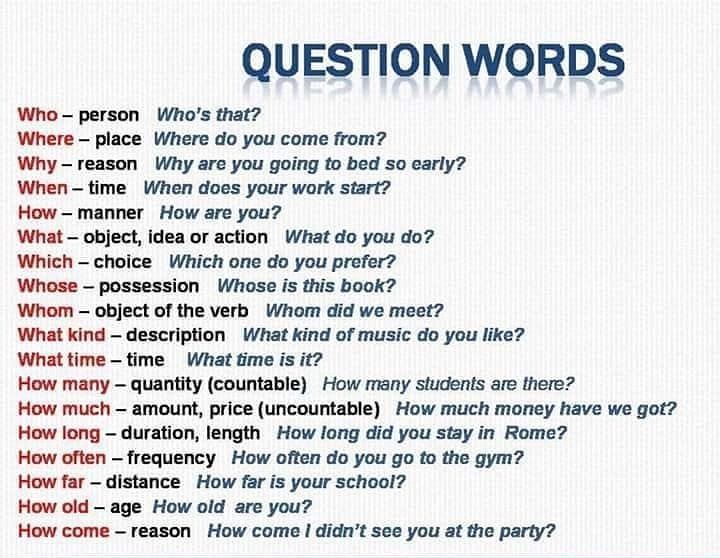
- Settle him in the cot and then pat him with a cupped hand. Start patting quickly and then slow down as he calms. Pat at about the pace of your heartbeat.
- Push him in a pram back and forth over a bumpy surface such as the edge between your carpet and tiles or over footpath bumps.
- Have some constant noise such as humming, singing a little song, relaxing music or household noise – some babies relax if they can hear the vibration noise of the washing machine or dryer.
- Check that he is not too hot or cold, and that clothing is not too tight.
- A warm bath.
- Offer another feed, (often called a ‘top-up’ feed).
- Allow him to suck on a dummy or thumb (dummies should not be used until breastfeeding is established at about 6 weeks).
Look after yourself
Almost all adults find interrupted sleep makes them feel tired and irritable, and relationships can suffer.
- Try to keep your own life not too hectic when the baby is young.
- Take breaks when you can.
- Catch up on sleep. Sleep or rest when your baby sleeps, day and night.
- Take the phone off the hook.
- Ask for and accept help when it is offered.
- Put a ‘Do not disturb’ sign on your front door.
- Remember to get some exercise – walking is good.
- Join a group of other new parents.
More information
Local community, school or child health nurse
- See inside your baby's purple All About Me book
- Look in the service finder for child health centres
- Visit your nearest child health centre
Local family doctor
Ngala Parenting Line
- 8.00am – 8.00pm 7 days a week
- Phone: (08) 9368 9368
- Outside metro area – Free call 1800 111 546 (free from land line only)
- Visit the Ngala website (external site)
Raising Children Network
- Visit the Raising Children Network website (external site)
© Women’s and Children’s Health Network, reproduced with permission. The South Australian Government does not accept responsibility for the accuracy of this reproduction.
The South Australian Government does not accept responsibility for the accuracy of this reproduction.
Acknowledgements
Child and Adolescent Health Service – Community Health (CAHS CH)
This publication is provided for education and information purposes only. It is not a substitute for professional medical care. Information about a therapy, service, product or treatment does not imply endorsement and is not intended to replace advice from your healthcare professional. Readers should note that over time currency and completeness of the information may change. All users should seek advice from a qualified healthcare professional for a diagnosis and answers to their medical questions.
See also
- Child development
- Child development 0–3 months
Newborn sleep schedule: How much newborns sleep
Newborn babies sleep from 11 to 16 hours a day, at all hours of the day and night. Your baby's sleep patterns may be unpredictable for a while, and there's no need to put them on a sleep schedule just yet, though there are some things you can do to encourage good sleep habits.
Your baby's sleep patterns may be unpredictable for a while, and there's no need to put them on a sleep schedule just yet, though there are some things you can do to encourage good sleep habits.
As the parent of a newborn, you've probably never been more exhausted than you are right now. After a few weeks of round-the-clock feedings, you might feel anxious to establish a sleep routine so you can get a little rest.
The first few weeks with a newborn are overwhelming. However, trying to establish a sleep schedule is fruitless at this stage. When it comes to sleep, newborns are all over the map. They sleep for short stretches of time (usually just a few hours), and wake frequently to eat because their stomachs are so small.
Toward the end of the first month, you might notice patterns emerging as a clue to your baby's future sleep habits. But for now, all you can do is meet your baby's needs, lean on friends and family for support, and grab every minute of rest that presents itself. (And for more advice from a pediatric sleep doctor about coping with newborn sleep, as well as what you can do to help baby sleep better throughout the first year, check out The BabyCenter 3-Stage Sleep Solution from BabyCenter Courses.)
(And for more advice from a pediatric sleep doctor about coping with newborn sleep, as well as what you can do to help baby sleep better throughout the first year, check out The BabyCenter 3-Stage Sleep Solution from BabyCenter Courses.)
How much should a newborn sleep?
Because newborn sleep is unpredictable and varies from baby to baby, it's hard to say how much you can expect your new baby to sleep each day. The average newborn sleeps about 16 to 20 hours a day, with eight to nine hours of sleep happening at night and the rest happening during the day.
It's not uncommon for a newborn's sleep pattern to change from day to day. Your baby may sleep substantially less than usual one day and then "catch up" by sleeping more the following day. It's okay to let your newborn sleep as much as they want, as long as they wake up to eat every two to three hours, are gaining weight adequately, and are wetting six to eight diapers a day.
You'll probably find that your newborn sleeps for a large part of the day, waking primarily to eat and then falling back to sleep soon after. These "wake windows" last anywhere from an hour to an hour and a half during your baby's first months, but the pattern will change as your baby grows and spends more time awake and alert.
These "wake windows" last anywhere from an hour to an hour and a half during your baby's first months, but the pattern will change as your baby grows and spends more time awake and alert.
Should I put my newborn baby on a sleep schedule?
No. It's normal for your newborn baby to have an irregular sleep pattern. Part of that comes from the need to eat frequently and sleep a lot. Most experts recommend following your baby's cues during the first weeks of their life, including feeding them on demand.
Still, you can start to follow a schedule of sorts over this first month by establishing some consistent routines, like eating, "playing," and then sleeping. As your baby starts to sort out their sleep rhythms, having these routines in place and introducing good sleep habits can help them more easily settle into a schedule as they get older.
Getting outside into daylight, especially in the morning, will also help your newborn learn to tell day from night and start to get on a more predictable schedule.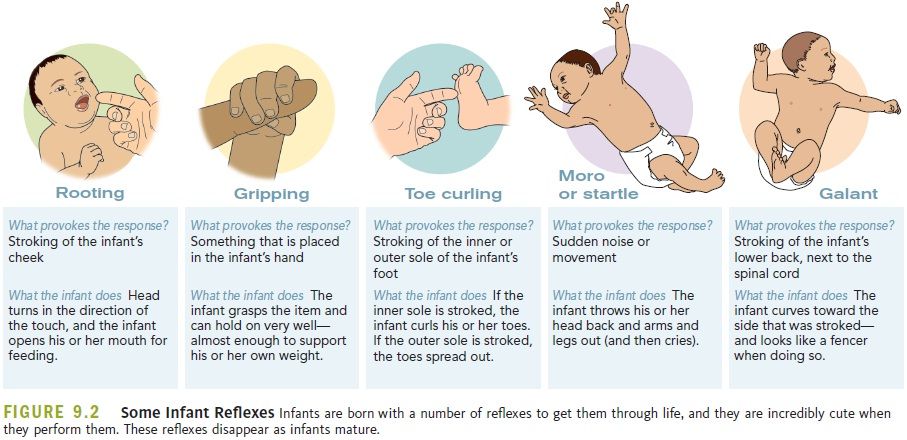
Advertisement | page continues below
It's normal for babies to have irregular sleep patterns from birth to 3 months. Newborns haven't yet developed their circadian rhythm, the internal 24-hour clock that signals to your body when it's time to be awake and when it's time to sleep.
Unpredictable sleep patterns are also linked to your newborn's nutritional needs. They need to eat every two to three hours in the first month and every three to four hours in the second month. As they get older, they won't need to eat as frequently. Most babies will be able to go through the night without a feeding anywhere from 3 to 6 months old.
Fortunately, unpredictable newborn patterns don't last long – though it may seem like an eternity when you're sleep deprived. Some babies consistently sleep for longer stretches by 3 or 4 months, and many will sleep through the night by 6 months. Others won't until they're older.
What a newborn sleep schedule may look like
As a newborn, your baby will sleep for one to four hours at a time around the clock. (A stretch of 4 hours of sleep is unusual, however.) Here's what a day's sleep may look like:
(A stretch of 4 hours of sleep is unusual, however.) Here's what a day's sleep may look like:
- 6 a.m.: Wake, change diaper, and eat
- 7:30 a.m.: Morning nap
- 9 a.m.: Wake, change diaper, and eat
- 10 a.m.: Second morning nap
- 12 p.m.: Wake, change diaper, and eat
- 1 p.m.: Afternoon nap
- 3 p.m.: Wake, change diaper, and eat
- 4 p.m.: Second afternoon nap
- 6 p.m.: Wake, change diaper, and eat
- 6:30 p.m.: Bedtime
- 9 p.m.: Wake, change diaper, and eat
- 9:30 p.m.: Back to sleep
- 12 a.m. Wake, change diaper, and eat
- 12:30 a.m. Back to sleep
- 2 a.m.: Wake, change diaper, and eat
- 2:30 a.m.: Back to sleep
- 4:30 a.m.: Wake, change diaper, and eat
- 5 a.m.: Back to sleep
How to encourage healthy newborn sleep
As your baby gets older, they'll eventually settle into more of a pattern. You can help encourage that routine by introducing healthy sleep habits early, including:
Teach your baby the difference between day and night.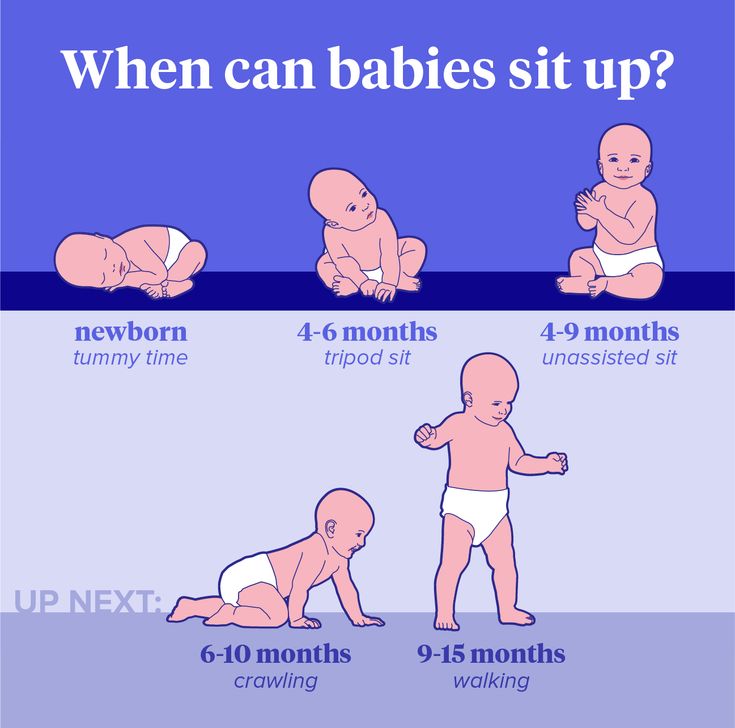 Once your baby is about 2 weeks old, you can start teaching them to distinguish night from day. When they're awake during the day, keep the house bright, don't worry about minimizing regular daytime noises, and interact and play with them as much as you can. At night, keep the lights and noise level low and any interactions with your baby boring and quiet.
Once your baby is about 2 weeks old, you can start teaching them to distinguish night from day. When they're awake during the day, keep the house bright, don't worry about minimizing regular daytime noises, and interact and play with them as much as you can. At night, keep the lights and noise level low and any interactions with your baby boring and quiet.
Learn your baby's tired signals. If you spot signs of sleepiness in your baby, put them down as soon as possible. These clues include rubbing their eyes, pulling on their ears, and being fussier than normal. If your baby becomes overtired, it can be harder for them to settle down and sleep.
Start a bedtime routine for your baby. It might be too soon to create a schedule, but it's never too early to start a bedtime routine. It can include things as simple as a calming bath, dressing for bed, feeding your baby, and singing or playing a lullaby or calming music. Don't feel like you need to do anything elaborate at this point, though.
Put your baby to bed when they're sleepy but awake. As your baby begins their second month of life, you can try giving them a chance to fall asleep on their own by putting them in their bassinet or crib when they're sleepy but still awake. This doesn't work for all young babies, though, so don't be concerned if your baby can't fall asleep without your holding, rocking, or nursing them.
Learn more:
- The BabyCenter 3-Stage Sleep Solution
- How to babyproof your house
- How much formula newborns need
- How much breast milk newborns need
- Expert sleep strategies
06/19/2015
190815
305
Knowledge Base
0-3
Author
Tatyana Chkhikikvishvili
Tatyana Chkhikikvishvili
Head of the Online Program, Tatyana Chkhikikvishvili is waking up. psychologist, sleep and breastfeeding consultant
Mom of two children
Your life has changed - a baby has appeared in it. Along with an overflowing feeling of happiness, a mother often has many questions about caring for a baby. And this is quite natural, because the first month of a child's life is not only a great joy, but also a new responsibility. nine0003
Along with an overflowing feeling of happiness, a mother often has many questions about caring for a baby. And this is quite natural, because the first month of a child's life is not only a great joy, but also a new responsibility. nine0003
Sleep plays a special role in the correct and harmonious development of a child, so every mother wants to learn as much as possible about this important process in a baby's life. How much should a newborn baby sleep per day? How many hours should a newborn sleep during the day and how many at night? How many hours does it cost him to stay awake during the day? When should a mother put her baby to bed at night? Should I keep the same sleep pattern day and night? How many times can a newborn baby wake up during the night? These questions often arise in front of parents in the first weeks after the birth of a child. nine0003
0–4 months. Improve sleep in 3 weeks
How much should a newborn sleep per day?
It may seem that a newborn baby in the first week sleeps almost all the time, day and night. So it is: the sleep of a baby up to a month is the same day and night. A newborn baby sleeps in short bursts and wakes up every 1 to 3 hours to eat before going back to sleep. This is a very important period in the life of the baby: in a dream, the child adapts to a new, not yet familiar way of life outside, not inside. nine0003
So it is: the sleep of a baby up to a month is the same day and night. A newborn baby sleeps in short bursts and wakes up every 1 to 3 hours to eat before going back to sleep. This is a very important period in the life of the baby: in a dream, the child adapts to a new, not yet familiar way of life outside, not inside. nine0003
On average, a newborn baby under the age of one month sleeps 16-19 hours a day. But all children are very different, and there may be deviations from the average values up or down.
Poll
What sleeping position was recommended for your baby in the maternity hospital?
(you can choose one or more options)
- On the side
- On the back
- On the stomach
- Half-side
- Did not say anything
Voted: 94530003
How long does a child under one month stay awake? It is difficult for an excessively tired child to fall asleep, sleep can be restless and intermittent due to overwork, a newborn child may wake up more often.
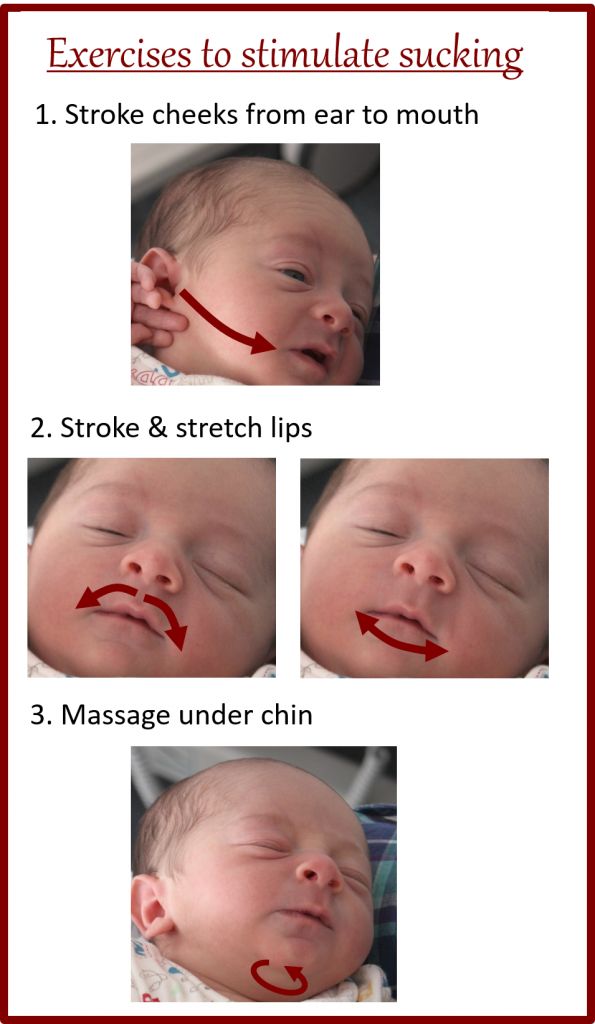 The result of such a dream can be excessive tearfulness of the baby and, as a result, anxiety of the mother and frequent rises at night.
The result of such a dream can be excessive tearfulness of the baby and, as a result, anxiety of the mother and frequent rises at night. The ease of falling asleep also depends on how long the child is awake. Usually a newborn at the age of 1-2 weeks can be awake during the day without overwork for 40-50 minutes. At 3–5 weeks, this time increases to 50–60 minutes. But it is increasing rather slowly. Even by 4 months, the waking time is only 2 hours. This time includes feeding, preparing for bed, and laying down. nine0003
If your baby cries at bedtime, has trouble falling asleep, sleeps poorly, wakes up crying every hour or more, you probably need to put him to bed a little earlier and reduce wakefulness periods.
A baby under 4-5 weeks of age should not be more than an hour awake!
Newborn sleep while breastfeeding
A breastfed infant wakes up every 1.5-3 hours on average. If a newborn baby sleeps next to his mother, then when he wakes up, he quickly finds the breast, attaches to it and, having eaten, calmly falls asleep again. This way of co-sleeping is more often convenient for both mother and baby: mother does not have to wake up every time, especially at night, get up to the crib and shift the child to her. nine0003
This way of co-sleeping is more often convenient for both mother and baby: mother does not have to wake up every time, especially at night, get up to the crib and shift the child to her. nine0003
Formula-fed newborn sleep
Formula-fed newborns have slightly different sleep and wake times than breastfed babies. One of the reasons is the rate of digestion of breast milk - it is higher than that of formula milk. The mixture allows you to prolong the feeling of satiety of the child, so for 2-3 hours a well-fed baby may never wake up.
The size of the portion also affects the duration of sleep: infants drink a different amount of breast milk at each meal and sometimes they may “not finish eating”, so their sleep time may be shorter than for formula-fed babies who receive milk formula in equal portions. nine0003
Remember that a child can wake up not only from hunger. He may be bothered by colic or a wet diaper. Also, the quality and duration of sleep is affected by the microclimate in the room. A humidifier will be a good helper, especially during the heating season. And don't forget to air out the nursery before getting ready for bed.
A humidifier will be a good helper, especially during the heating season. And don't forget to air out the nursery before getting ready for bed.
Remember to air out your child's room before going to bed.
Child development stage
Children are born with a range of reflexes. Some of them gradually fade away over several weeks and months, while others remain. The main reflexes of a newborn baby are the reflex of sucking, swallowing and regurgitation. While this is enough for the baby to begin to develop. Newborn babies do not control their movements and cannot hold their heads or roll over on their own. It is because of uncontrolled movements that a newborn can wake up. Therefore, sleep consultants advise swaddling in the first months. Each mother herself decides on the need for swaddling, based on personal preferences and characteristics of the baby. nine0003
In the first 2 weeks of life, a newborn is practically insensitive to signals from the outside world, especially when sleeping. He may not respond to loud and harsh sounds, bright lights and movements. The child goes through a difficult adaptation period in the first month of his life, and sleep is partly a protective function of the body. It helps to get used to the changes that happened to the baby immediately after birth, allowing you to gradually and gently adapt to a new, yet unfamiliar world. This is one of the reasons why a newborn sleeps so many hours every day. nine0003
He may not respond to loud and harsh sounds, bright lights and movements. The child goes through a difficult adaptation period in the first month of his life, and sleep is partly a protective function of the body. It helps to get used to the changes that happened to the baby immediately after birth, allowing you to gradually and gently adapt to a new, yet unfamiliar world. This is one of the reasons why a newborn sleeps so many hours every day. nine0003
Sleep this month is affected by:
- No body clock set. Newborn babies don't live in a 24-hour rhythm. Their sleep does not depend on the time of day. The need to feed every couple of hours in the first month of life causes fragmented sleep both at night and during the day.
- Absence of "day" and "night". The kid does not know that now the night has come and it's time to sleep, and the day is the time for walking and playing. The rhythm of sleep and wakefulness of the child still needs to be tuned in over the coming months.
 It is important from the first days of life to show the child the difference between day and night, in order to avoid the very common problem of "mixed up day and night." nine0042
It is important from the first days of life to show the child the difference between day and night, in order to avoid the very common problem of "mixed up day and night." nine0042 - Neonatal rhinitis. Does the newborn cry during breastfeeding or bottle feeding, does not calm down during feeding, does not fall asleep at the end of it? Sensation as if he were disturbed by a stuffy nose. Why this happens, how to help the baby and when it is important to show the child to the doctor in a short video tells the sleep specialist Irina Zavalko.
The video was made with the support of the favorite brand of children's goods Chicco
The newborn has no biological clock, the baby does not distinguish between "day" and "night". nine0003
| | Daytime sleep |
In the first weeks of life, babies sleep a lot. Daytime naps average 1-2 hours, but their duration may be less. In this case, the wakefulness time is only 40-60 minutes, i.e., after waking up, after about 40 minutes the child is ready to fall asleep again. Daytime naps average 1-2 hours, but their duration may be less. In this case, the wakefulness time is only 40-60 minutes, i.e., after waking up, after about 40 minutes the child is ready to fall asleep again. | |
| | Night sleep |
| Newborn babies have a very small stomach and need to be fed every 2-3 hours on average, so waking up frequently at night is natural at first. But some babies can sleep for 5-6 hours without waking up. Such a long period without awakening can be only once a day, so it is important that it falls at night, because if the baby sleeps for a long time during the day, he will not be able to sleep as long at night. nine0107 |
Tip of the month
During the neonatal period (up to 1 month), it is very important to recreate familiar conditions for babies, similar to those that were in the womb. Swaddling, rocking, white noise - all this soothes a newborn baby, gives him a feeling of comfort and helps him fall asleep.
#gv#iv
190815
', nextArrow: '', responsive: [{breakpoint: 1199, settings: {arrows: !1, infinite: !1, slidesToShow: 1}}] }) })How much sleep does my baby need? nine0001
Your baby will learn to distinguish between day and night only gradually...
Each child has his own individual rhythm of sleep and nutrition, as well as an individual need for them. Just in newborns in the first weeks of life, the ability to distinguish between day and night has not yet been developed. Opportunities to influence this rhythm are extremely limited.
Parents can support the child in his development, but the child determines his own biorhythm. Some newborns have a pronounced tendency to a regular daily routine. Such children begin to sleep early at night without waking up. Other babies experience the need for food and sleep at completely different hours of the day and night for months. They need the support of their parents in order to develop a systematic or compatible biorhythm with the whole family. nine0003
nine0003
It is important to have a regular, relaxed daily routine with regular meals, bedtime, and other activities such as walking or rituals. A recurring daily routine, including bathing, feeding, an evening story or a lullaby, is soothing. Please don't forget to replenish your energy reserves too: make sure your diet is balanced, drink enough fluids and give yourself some rest during the day. nine0003
In the first weeks of life
In the first weeks, it seems to you that your baby sleeps almost all day - in fact, newborns sleep about 18 hours a day, most often 4 hours. Sleep is interrupted by wakefulness phases during which the baby is fed, swaddled and played with.
In the first 4-6 months of life
In the first 4-6 months of life, the baby learns to distinguish between day and night. After all, children are not born with this skill, and their internal clock is adjusted after birth, focusing on the daily routine of the family. Over time, frequent short sleep phases will be replaced by longer sleep. At the same time, the phases of wakefulness gradually become longer. nine0003
At the same time, the phases of wakefulness gradually become longer. nine0003
From 6 to 12 months
From 6 to 12 months, most children sleep about 11 hours at night and 2 times a day for 1-1.5 hours. Longer daytime naps are not recommended as this may interfere with your baby's nighttime sleep.
Some parents are reluctant to wake their baby, believing that the baby's body needs sleep. However, in order for a healthy biorhythm not to be disturbed, babies who sleep too long during the day should be slowly awakened. It's better for your baby to be a little naughty after that than if he stays up at night and demands attention. Use your baby's daytime wakefulness phases for intensive activities with him. The longest phase of wakefulness - 4-5 hours - should be before a night's sleep. This will help your baby fall asleep easily in the evening and sleep soundly at night. nine0003
In the second year of life
In the second year of life, children need about 13 hours of sleep per day.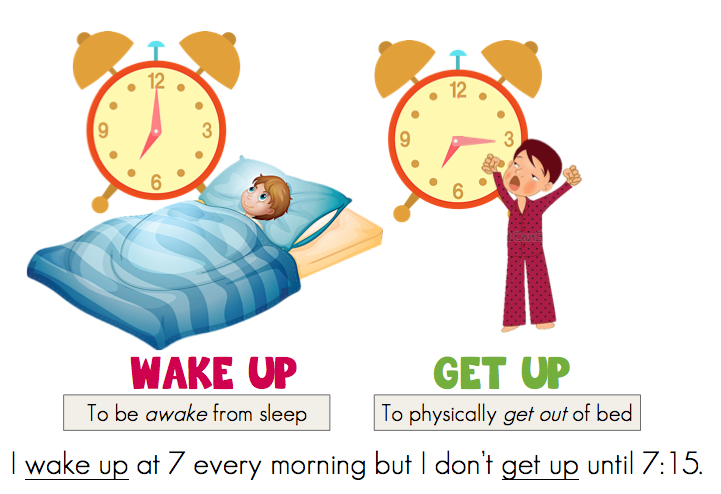 If at the same time 11 hours fall at night, then there is time for daytime rest. Some children already at the age of 10 months sleep only once a day, others are not in a hurry with this innovation until 1.5 years.
If at the same time 11 hours fall at night, then there is time for daytime rest. Some children already at the age of 10 months sleep only once a day, others are not in a hurry with this innovation until 1.5 years.
In the third year of life
The older the child, the less sleep he needs. In their third year of life, babies sleep only about 12 hours. Many give up naps altogether, some keep this habit until kindergarten. nine0003
Data for individual age groups
The following data for individual age groups are averages while individual sleep needs vary. Deviations within 1-2 hours are not a cause for alarm. And some children need even less sleep.
| Age | This is the amount of sleep your child needs per day (=24 hours) | nine0112
| Newborn | 16 - 20 hours |
| 3 weeks | 4 - 6 pm |
| 6 weeks | 15 – 16 hours |
| 4 months | 9-12 hours at night plus 2 naps (2-3 hours each) |
| 6 months | about 11 hours at night plus 2 naps (1-1. |







